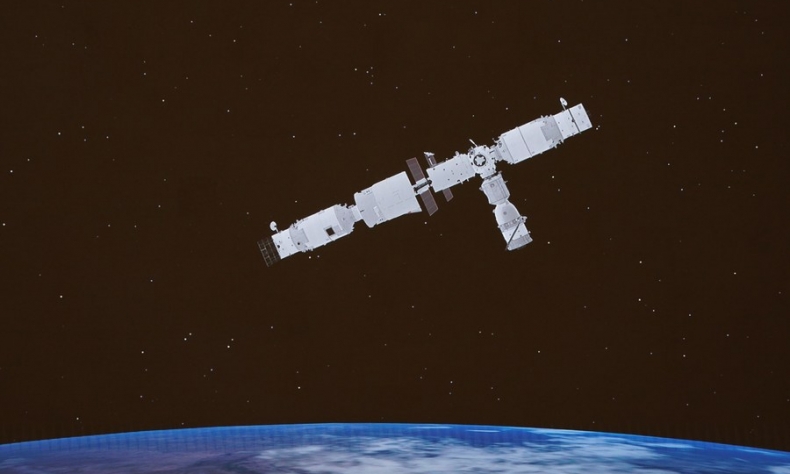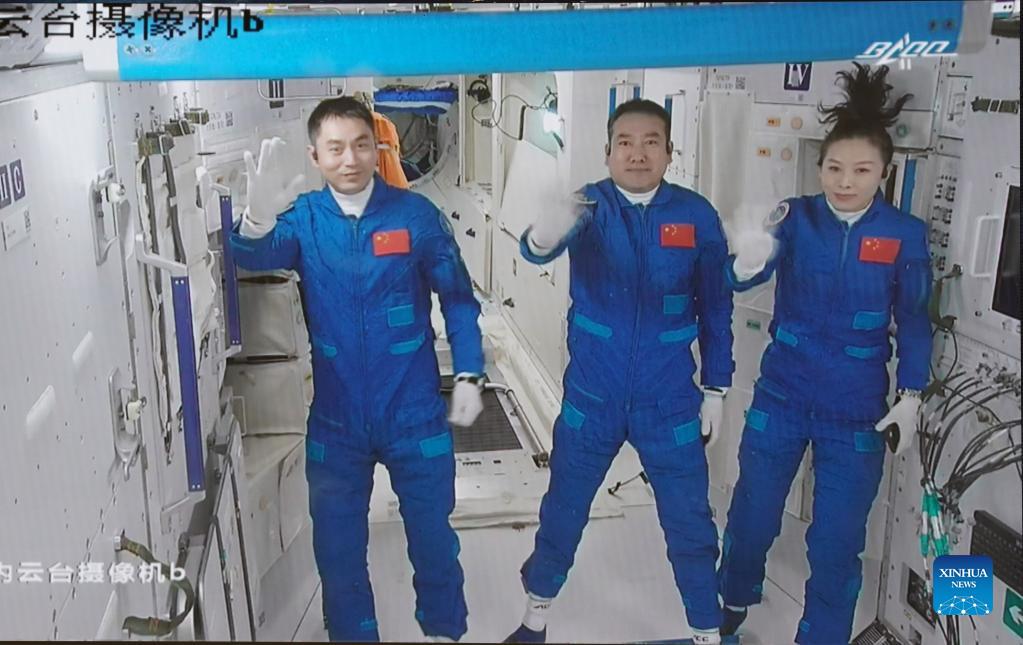Space Race, the Sequel?

The Chinese nation, uninterested in a meaningless “space race” with any other country, is eyeing the continuation of home and human civilization.
Less than one month after the first three Chinese astronauts had made their return to Earth, China sent another new three-person crew into space on October 16. This time around, these taikonauts will work in orbit for a period of six months.
China’s journey into space has achieved historic progress within a relatively short time span. The independent construction of a space station, the Chang’e-4 lunar probe soft landing on the far side of the moon, the completion of the Mars rover mission, and the launch of a solar explorer; the combination of the aforementioned seems to have led the United States, a “contestant” in the original “Space Race” (1957-1975) with the former Soviet Union—each vying for superior spaceflight capability—to consider China its No.1 imaginary enemy.
Not long ago, the National Aeronautics and Space Administration (NASA) Administrator Bill Nelson in an exclusive with The Washington Post publicly stated that the U.S. was now engaged in a new space race with China, stating that “space is increasingly becoming a high ground, as well as an important position to protect our national interests.”
Yet, in reality, China has never shown any inclination to compete with the U.S. China has always emphasized that the universe is the common wealth of the whole world. China is willing to cooperate with all countries and regions committed to the peaceful development of outer space and welcomes foreign astronauts to work inside China’s space station.
Then why does the U.S. constantly portray China as an “aggressive competitor” and claim that China wants to challenge the U.S.’s leading position in this specific sector?
The most immediate reason is perhaps that some related agencies want to lobby for more funding from Congress. NASA, for example, has proposed more ambitious goals over the years, including a reboot of the moon landing program—which has been put on hold for nearly 50 years at this point—and the sending into space of a probe to retrieve samples from Mars. All of these are time-consuming missions that, furthermore, require significant financial investment.

Playing up the China threat did pay off. U.S. Congress assigned $1.5 billion more to NASA for the 2022 fiscal year than it did the previous year, setting a new budgeting record.
Another reason for the U.S. to consider China a rival in the “space race” is its deep-rooted colonialist ideology. During the Age of Discovery—exploring the shores from North America to Africa and Asia—Western colonists explored and conquered almost every inch of accessible land on Earth. Everywhere they went, they established colonies, raided local resources and enslaved the natives. Colonialism ensured a steady flow of wealth to the West, but at the same time brought endless suffering to the populations of the conquered grounds.
Today, the system of colonialism still wields a deep-rooted influence on the Western mindset. Possibly in their thinking, the driving force behind the human exploration of the universe is a quest for new resources, with the ultimate goal of discovering inhabitable planets. In other words, it is an outer space version of colonial expansion.
Therefore, people who are accustomed to thinking along colonizing lines tend to be more suspicious of China’s continuous entry into the space field and try to take preemptive action.
For anyone who is familiar with Chinese history, some 80 years prior to Christopher Columbus’ discovery of the New World, explorer and diplomat Zheng He had commanded a huge fleet to visit lands that the Chinese had never before set foot on, as an ambassador of peace and friendship.
For the Chinese, the meaning of exploring the vast universe is more for the benefit of the blue planet that human beings have inhabited for millennia, rather than anything else. Please note that, in one of the most popular works of Chinese science fiction The Wandering Earth, when the sun is aging and expanding to the point of swallowing up the entire solar system, mankind escapes—sailing the Earth into a new star system. This romance in a way reflects that the Chinese nation, uninterested in a meaningless “space race” with any other country, is eyeing the continuation of home and human civilization.
 Facebook
Facebook
 Twitter
Twitter
 Linkedin
Linkedin
 Google +
Google +










